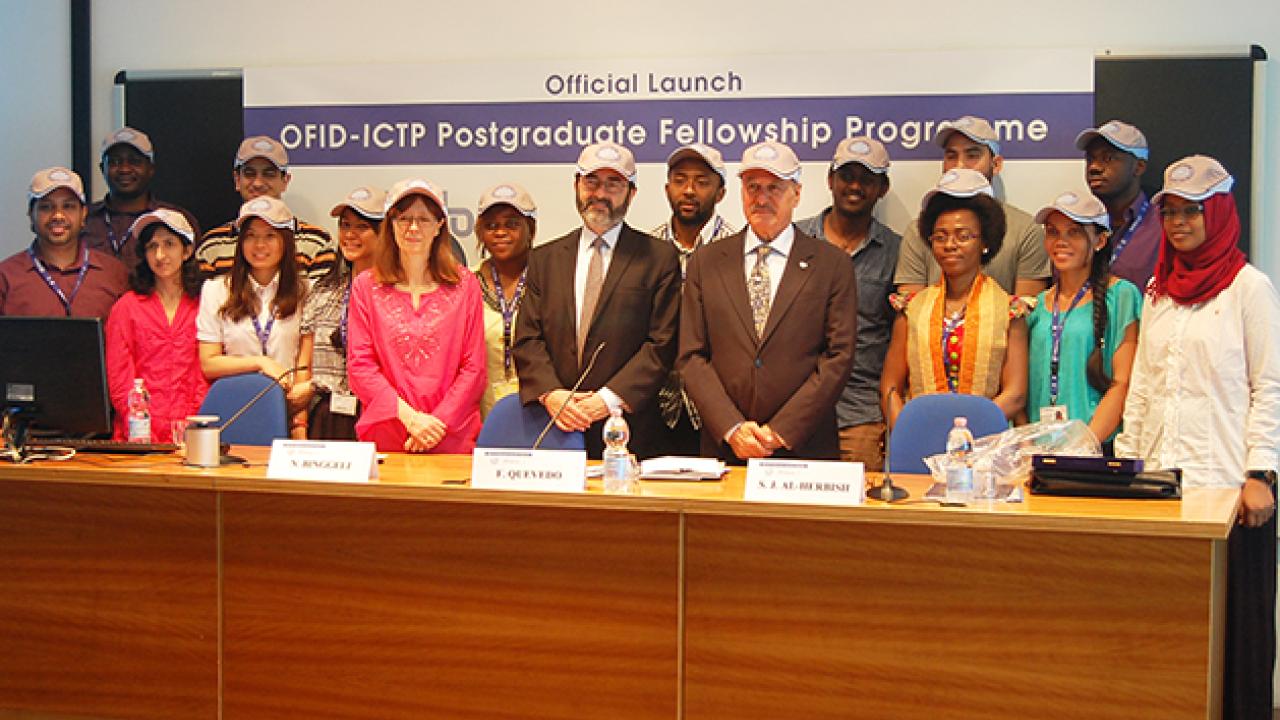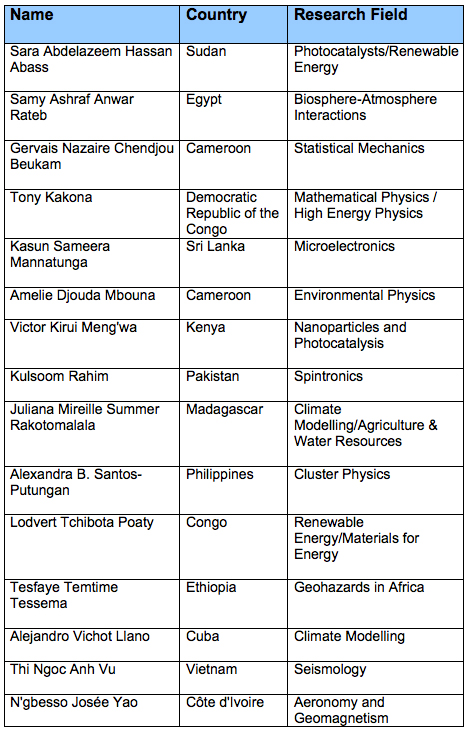
A new partnership between ICTP and the OPEC Fund for International Development (OFID) has secured collaboration and research opportunities at ICTP for students from developing countries working toward their PhDs.
Formally announced today at a ceremony in Trieste, the OFID Postgraduate Fellowships Programme supports 15 doctoral students who are carrying out research and training towards their PhDs within ICTP’s Sandwich Training Educational Programme (STEP). Through STEP, PhD students from developing countries who are granted OFID Fellowships study at their home universities but have the financial support to visit ICTP or a collaborating institute for a six-month stay each year for three successive years. Fellows work on their PhD theses with their advisors at their home institutes and co-advisors at the hosting institutes. Their PhD is awarded at their home institutes.
See photos from the ceremony on ICTP's Flickr page
In remarks at the ceremony, OFID Director-General Suleiman Jasir Al-Herbish thanked ICTP and acknowledged the two organization’s shared mission. “I take this opportunity to express OFID’s appreciation for ICTP’s valuable contribution to the advancement of scientific expertise in the developing world, in particular in the areas of physics and mathematics. We are proud to know that ICTP has been able to do that thanks in part to a fruitful partnership with OFID which dates back to 1980,” he said, adding that the Fellowship Programme supports OFID’s vision of sustainable development centred on human capacity building.
OFID seeks to stimulate economic growth and alleviate poverty in the most disadvantaged parts of the world, and it has long been ICTP's mission to promote sustainable development through building and supporting scientific communities in developing countries. ICTP Director Fernando Quevedo highlighted in his welcome remarks how STEP is an effective link between these two missions. “STEP not only supports students' individual education but also the spread of knowledge as they regularly travel back to their home institutions. The high-quality training and resources ICTP provides, thanks to the generous financial assistance from OFID, thus helps fuel the development of local scientific research communities, as well as stimulating new technological approaches to local problems,” he said.
The OFID Postgraduate Fellowships have been awarded to 15 PhD students from 14 developing countries. Several of the OFID Fellows have already arrived at ICTP to enrich their studies, including Tesfaye Temtime Tessema, who is researching geohazards in Africa for his PhD at Addis Abba University in Ethiopia "It's difficult to do research in developing countries. The facilities and resources are very limited. What ICTP offers is very valuable," he explains. OFID Fellow Sara Abass, who is studying renewable energy at the University of Khartoum in Sudan, agrees. "STEP usually lets students spend three months at ICTP, but OFID is funding six months every year we're doing our PhD, which is very helpful." The networking and knowledge gained at ICTP, she explains, helps her do both cutting-edge research in her field and enhance connections for her department at her home university.
How the STEP students apply their degrees--whether it is work in academia, industry, new businesses, or policy--the opportunities and resources provided by OFID and ICTP afford them strong scientific skills. In the quest for evidence-based policy making and sustainable development, the STEP students are helping OFID and ICTP build scientific capacity around the world.
--Kelsey Calhoun
OFID Postgraduate Fellows
















